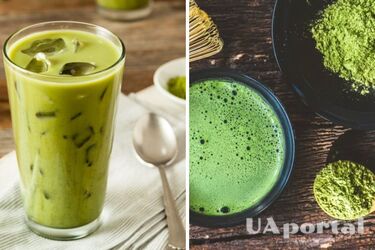Invigorates and improves performance: benefits and rules for making matcha tea

Matcha tea is a traditional Japanese tea. However, it has gained popularity in global coffee shops in recent years, replacing coffee as a healthy alternative drink.
This is what radiotrek writes about.
What is matcha tea?
Matcha is a powder made from crushed young tea leaves ground on millstones. The perfect quality of matcha is achieved only on Japanese plantations. Before the harvest, which takes place in late spring or early summer, the Camellia Sinensis tea bushes are protected by special canopies. Matcha contains 137 times more antioxidants than regular green tea and 70 times more than orange juice, which makes it one of the top antioxidant foods.
The process of making matcha tea is as follows:
After harvesting, the leaves are steamed and dried, stems and veins are removed and then ground into a fine powder. This is real matcha tea. It is also important to consider storage and transport conditions. Matcha should be tightly packed, protected from light and stored in a cool place.
What are the benefits of drinking matcha tea?
Matcha makes you feel cheerful, just like coffee, but the effect on the body is less intense and longer. It is not accompanied by a rapid heartbeat or sweating, which is typical after drinking coffee. It increases work productivity, ensures long-term focus on a task and a positive mood instead.
Read also: Tea or coffee: which drink is better for breakfast or dinner
How to make matcha tea?
To prepare matcha tea, you should use traditional utensils: a ceramic bowl, a bamboo whisk, a bamboo measuring spoon and, of course, matcha tea itself, which has the fresh aroma of young tea leaves.
To make matcha tea:
- Warm up the bowl with hot water and heat the whisk by dipping it in for 10-15 seconds. Wash the bowl.
- Measure out about 2 grams of matcha using a bamboo measuring spoon and pour into the bowl. Add 60-80 ml of preheated water (temperature 70-80 degrees).
- Bend the whisk in a zigzag motion, whisking the matcha on the surface of the liquid until stable foam forms.
As a reminder, we have already written about the pros and cons of tea.
If you want to get the latest news about the war and events in Ukraine, subscribe to our Telegram channel!
